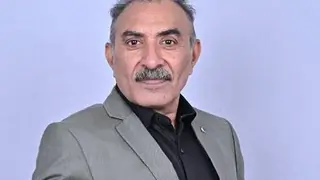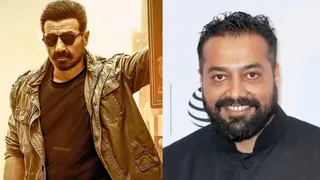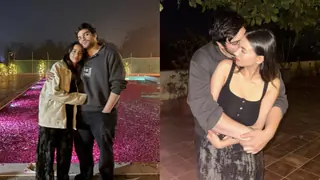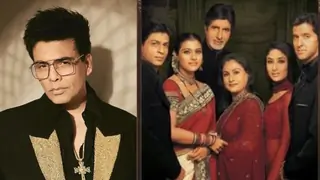Pakistani cinema applauded at South Asia fest
Panaji, June 30 (IANS) Nine Pakistani films - among the 45 movies screened at the South Asian Film Festival (SAFF) here - drew attention and appreciation here with their themes of fundamentalism and society vis-a-vis the West.
Published: Monday,Jun 30, 2008 13:55 PM GMT-06:00
Panaji, June 30 (IANS) Nine Pakistani films - among the 45 movies screened at the South Asian Film Festival (SAFF) here - drew attention and appreciation here with their themes of fundamentalism and society vis-a-vis the West.
Reporter Sharmeen Obaid Chinoy's documentary 'Double Game' was among those screened. Made in 2005, the film attracted a small audience, thanks to lacklustre publicity, but was hugely appreciated.
Pakistan is considered a frontline state in the US' 'war against terrorism'. Since September 2001, the country has arrested Al Qaeda operatives and launched a drive to fight extremism in the name of religion.
But in the film, Chinoy travels across Pakistan to gauge reactions of ordinary citizens who feel their president is 'selling out to the West'.
From Karachi jails, she goes to meet army personnel and police officers. Their message - extremism is gaining strength, and their violent ideology is difficult to counter.
In Lahore, she meets a Guantanamo Bay detainee who talks about abuses faced at the hands of the US. Chinoy also meets ordinary Pakistanis keen to fight back the fundamentalists. Her documentary focuses on the ideological battles between radicals, moderates and the army.
Another Pakistani film, 'Khuda Kay Liye', screened at the International Film Festival of India (IFFI) last year, was part of the impressive bouquet of films offered at the festival that ended Monday.
Early this year it had a commercial release across India, which made it the first film to receive a full release since the India-Pakistan war of 1965, after which both countries had decided to officially ban each other's films.
The endeavour probably reflects a coinciding of concerns about growing religious intolerance in South Asia.
'Khuda Kay Liye', the feature film directorial debut of TV and movie producer Shoaib Mansoor, is about the difficult situation in which Pakistanis in particular, and Muslims in general, are caught up since 9/11.
It also touches the dilemma of educated and 'modern' Muslims who find themselves in a difficult situation because of their approach towards life and their Western attire. Yet, the West sees those with Muslim names to be potential suspects of terrorism and fundamentalism.
Chinoy's 'Women of the Holy Kingdom' too was screened at SAFF. The film shows how women in Saudi Arabia need to take permission from their male guardians to study, work and travel. They are forbidden to drive and mix with men in public. But now these women are clamouring for more rights.
'Check out the film 'Khamosh Pani',' suggests a local film buff.
Made in 2003, 'Khamosh Pani' is a French-German production about a widowed mother and her young son, set in a late 1970s village in Pakistani Punjab that is coming under the influence of religious radicalism.
This film's story starts in 1979 in a Pakistan that is under president Zia-ul-Haq's martial law. This is no documentary, but a story set against a seemingly well-adjusted middle-aged woman, her 18-year-old son Saleem, his love Zubeida, and the period that saw the official Islamicization of Pakistan.
Two other films by director Chinoy were shown at the festival - 'Journey Through Afghanistan and Iraq' and 'The Lost Generation'.
In the first, the journalist returns to Afghanistan to find out how life has changed for women in five years since the invasion by the US and its allies, to investigate whether women have been 'liberated', as claimed by US President George W. Bush.
She finds that liberation of Afghan women is more theoretical. That it is naive to think a country could be transformed so quickly when the oppression of women was the consequence of centuries of tribal and cultural practices - not the sole invention of the Taliban.
The West should be asking hard questions about where all the millions of aid money has gone with so little to show, the film says.
In the second film, it's pointed out that in five years, over four million Iraqis - 20 percent of the whole population - have been driven out of their homes due to war and sectarian bloodshed. Two million have become refugees, in Syria and Jordan.
Chinoy calls this the biggest and most catastrophic refugee crisis in the Middle East since the Palestinian diaspora of 1948.
The other Pakistani films screened here include 'World Ka Centre', 'Chandni' and 'Reinventing The Taliban'. The first tells the impact of 9/11 on Muslims while 'Chandni' focuses on issues of the Darwaish.
Join Our WhatsApp Channel
Stay updated with the latest news, gossip, and hot discussions. Be a part of our WhatsApp family now!
Join NowYour reaction
 Nice
Nice Great
Great Loved
Loved LOL
LOL OMG
OMG Cry
Cry Fail
Fail

















Post a comment